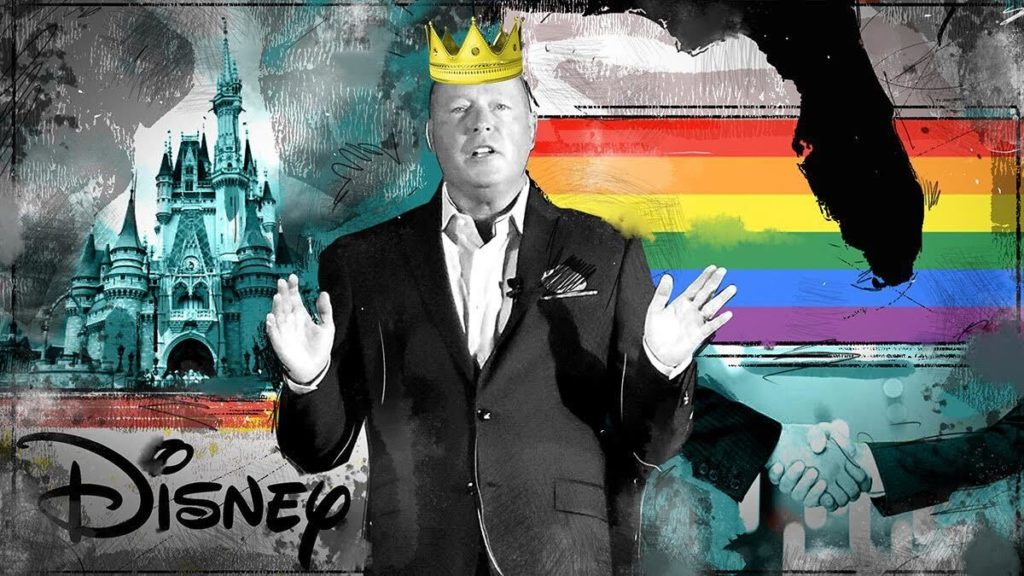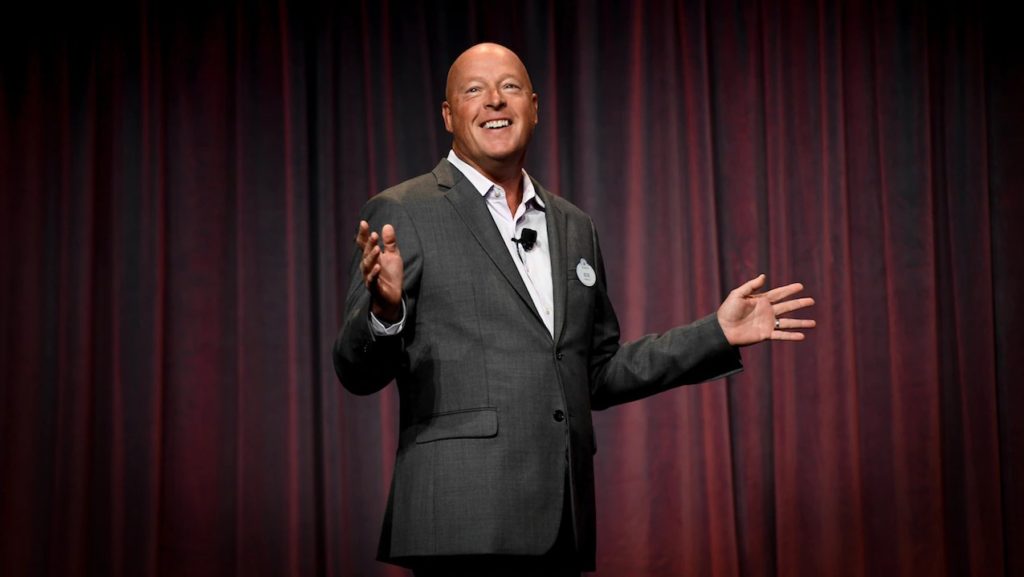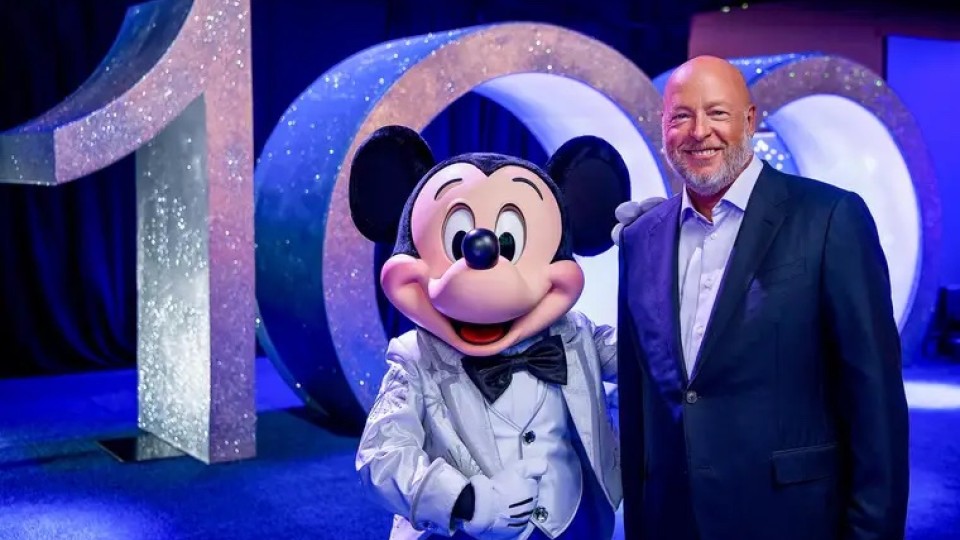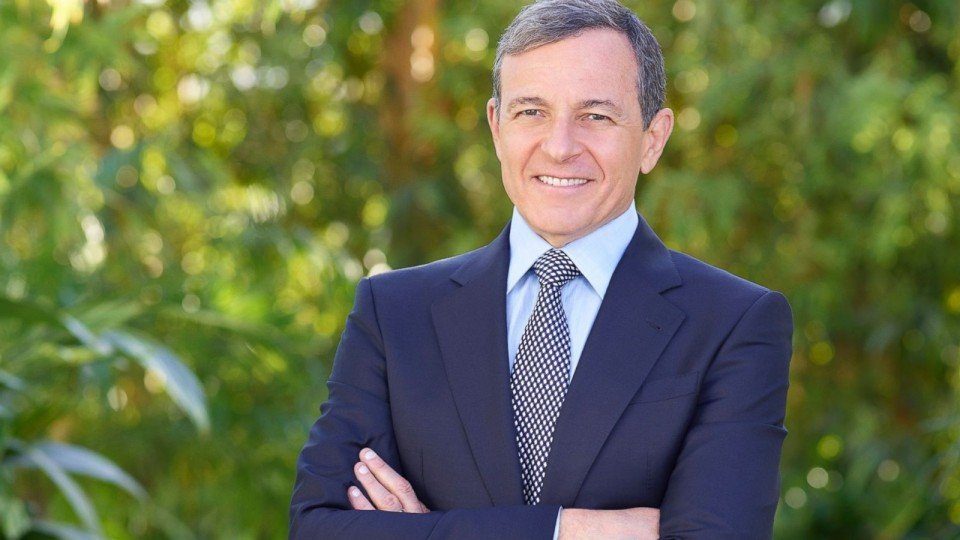4. Bob Chapek was never going to recover.

Listen, one on hand, it’s easy to feel bad for Bob Chapek. From go, the CEO had a lot leveraged against him: following Bob Iger; stepping in at the onset of the worst economic event in American history; fundamentally being a bad fit for the kind of leadership The Walt Disney Company requires… It’s also true that once fans had cast Chapek as a scapegoat and Villain, he stood little chance of escaping blame for the goings-on at Disney – even day-to-day changes that Chapek himself surely had no part in. But don’t take my last three bullet points as excuses. Quite the contrary. Chapek may have been set up to fail, but if so, he failed as spectacularly as he was meant to and then some.
Chapek’s lack of experience in entertainment; his lack of finesse with fans; his seeming disinterest in the creative side of the company; his exhaustingly monetized view of the theme parks; his notoriously data-driven decision-making processes and painfully stark treatment of the company’s legacy… Even coming in to the role with all of that, and even without the years of support Iger should’ve provided a successor, Chapek just couldn’t seem to stop stumbling into PR gaffes.
When the MCU’s Black Widow movie skipped theaters and went straight to Disney+ due to COVID, star Scarlett Johannson – one of the most powerful stars in Hollywood – sued to recoup the portion of her pay that would’ve been based on box office returns. Instead of acknowledging the need for an updated model, Chapek okayed a scathing press release that implied Johannson was being selfish to demand more money when so many were financially impacted. To make it right and keep the in-demand star in Disney’s camp, the company ended up needing to settle for more than Johannson requested to begin with.

Shortly thereafter, Chapek fumbled his response to legislation in Florida that would explicitly disallow mention of LGBTQ+ topics or families in elementary classrooms. In a major rebuke of Iger’s way of doing things, Chapek sent an email to employees explaining Disney’s silence on the matter by asserting that the company would remain silent, officially taking no stance. (Instead, he said, the company’s “diverse stories” like Black Panther, Coco and Shang-Chi would be more powerful than any statement). Digging his heels in, Chapek proclaimed that Disney would henceforth be apolitical, lest its statements be “weaponized” by one side or the other.
Fans and Disney’s LGBTQ+ employees pushed back. They cited Disney’s not-quite-apolitical donations to right-wing, 2020-election-denying Floridian politicians who supported the legislation and Disney’s historical power as a political change-maker in the state. Bucking from corporate synergy, official Disney accounts and celebrities went “rogue,” tweeting their denouncements of the the legislation and expressly calling out Chapek for his inaction.
(Chapek did eventually change tactics by finally, officially opposing the legislation, suspending political donations pending a review, and announcing a $5 million donation to the Human Rights Campaign. Chapek insisted in another email to employees that Disney had always opposed the law and that he’d been quietly working with state officials behind-the-scenes. But it was too late. In another public embarrassment, HRC actually declined to accept Disney’s $5 million donation until the company took “meaningful action.” By then, both sides of the political spectrum had been angered, either by Chapek’s action or initial lack thereof.)

Even in the wake of Florida’s bill hostile toward LGBTQ+ families and educators, Chapek and Parks Henchman Chairman Josh D’Amaro together initiated a forced relocation for nearly all of Walt Disney Imagineering, giving them 90 days to decide if they’d uproot their lives in California to permanently move to Central Florida. Of the reported 2,000 Cast Members affected by the relocation, it’s believed that only a few hundred opted in, and ironically, just in time for Chapek to delay the plan. Oops. That means that the other 1,800 or so found themselves unemployed – or more realistically, employed at Imagineering’s competitors. Oops again.
Permanently tone deaf, Chapek couldn’t seem to find support within or outside of Disney. A quarterly financial call couldn’t seem to go by with the CEO saying something that rubbed fans and employees the wrong way. A growing confidence crisis evolved around the CEO, whose bad case of “foot in mouth disease” just wouldn’t quit. And as all such leaders do, he seemed to cultivate a crop of similarly-spirited executives around him.
Exposés throughout Chapek’s reign suggested that Iger looked on from afar with disappointment at his successor’s style. According to the New York Times, Iger “lamented Mr. Chapek’s seeming lack of empathy and emotional intelligence, which resulted in an inability to communicate with or relate to Hollywood’s creative community,” suggesting that under Chapek, Disney was losing its “soul.”

Chapek’s last act as CEO was to announce that “tough and uncomfortable” moments lay ahead for Disney, and that he would institute a hiring freeze, rounds of layoffs, and a “cost structure task force” of decision-making financial experts with himself at the head (didn’t we get rid of Paul Pressler in the early 2000s?) to cut Disney’s already-slimmed-down pandemic-era operating costs, maximize revenue where possible (see: Disney Parks), and ensure that Disney+ became profitable by any means necessary. Some start to the Disney100 celebration!
Put simply: even two more years of Bob Chapek’s leadership would’ve made unthinkable changes to Disney’s structure, processes, offerings, and culture. That’s why the Board was willing to undertake the incredibly fraught and deeply embarrassing process of having him exit in the middle of a contract. So I have no tears to shed for Bob Chapek, who was paid $2.5 million in salary 2021 (plus about $30 million in stock) and reportedly made off with a “golden parachute” payout of around $28 million in compensation upon his dismissal. There’s no question: he needed to go. We should just be thankful that his actions finally impacted the stock price enough for the Board to agree.
And more to the point, given how many Cast Members his policies hurt and how many guests were impacted by his actions, it feels alright to laugh about the fact that Bob Chapek was CEO for less time than it’s taken to build TRON Lightcycle Run.
5. Even though Chapek is gone, we should still hold Disney to account.

For all he did not do, there is something Bob Chapek did that very few others can: he unified Disney fans. Chapek wasn’t just a convenient scapegoat; he was a Maleficent-level Villain in fans’ discussions about the parks, studios, and beyond.
His uniquely low position in fans’ esteem meant that Chapek was assigned blame for day-to-day policies at the Parks when he was their Chairman. But when he was elevated to CEO, so was the blame… (Indeed, fans seem reluctant to blame the current Parks Chairman, Josh D’Amaro, for the ills of Disney Parks even though, y’know, that’s his job.)
With Chapek gone, on whom will fall the “blame” for poor guest policies, price hikes, upcharges, and slashed perks? Will fan-favorite D’Amaro finally take his share? Iger himself? Or will fans turn their fervor toward CFO Christine McCarthy (who clearly caught foot-in-mouth disease from Chapek, infamously commenting on record at a quarterly earnings call that Disney would tackle inflation by raising prices and reducing portion sizes, “which is probably good for some people’s waistlines,” and defended Genie+ by saying some guests have “more time than money” while others have “more money than time”)?
Chapek was a uniquely unlikable leader who couldn’t seem to warm up to guests. It was easy to single him out as “the problem.” And listen – he earned it! Chapek likewise boasted about Disney’s “unparalleled synergy machine” and the “franchise flywheel” as if average people speak in corporate memos. He openly asserted that his business plan for Disney Parks was to attract fewer guests who spend more money. He combatted Parks fans’ questions about original, IP-free attractions by asserting that that was not Disney’s priority and wouldn’t be. In other words, he was easy to dislike and therefore, easy to hold to account.
So now, without a leader whose name can be invoked in every negative Facebook comment on Disney, we have to wonder… will we, the fans, continue to demand excellence of Disney Parks? Or will we simply deal with it since D’Amaro and Iger are largely likable, friendly, and warm leaders?
What’s next?

Clearly, Bob Chapek lacked the kind of vision that a CEO of the Walt Disney Company needs. We can feel bad for him and for the specifically bad position he was in. Likewise, there’s no question at all that Bob Iger’s return is a victory in many ways. Iger is a uniquely good leader for The Walt Disney Company, and a uniquely stabilizing force. But at age 71, his commitment to two more years means that once more, a cataclysmic countdown clock begins for Disney…
Will Bob Iger somehow manage to return Disney to fan esteem and overwhelming financial success? How many of Chapek’s leadership team will he rehire? How many of his short-lived successors policies will he undo? Will a guest at Disney Parks notice any difference between Chapek’s era and Iger’s second? If anything, this whole event had taught us it’s not worth trying to guess what’ll happen…
But if Iger intends to not only re-orient Disney back in the creative direction he initially set course for while finding someone who can step into his shoes in 700-ish days, we’re likely to see some major shifts at The Walt Disney Company relatively quickly. And with the Disney100 celebration launching the company’s second century with Iger back at the helm, it’ll certainly be interesting to see what of Chapek’s regime stays and what is left behind…


